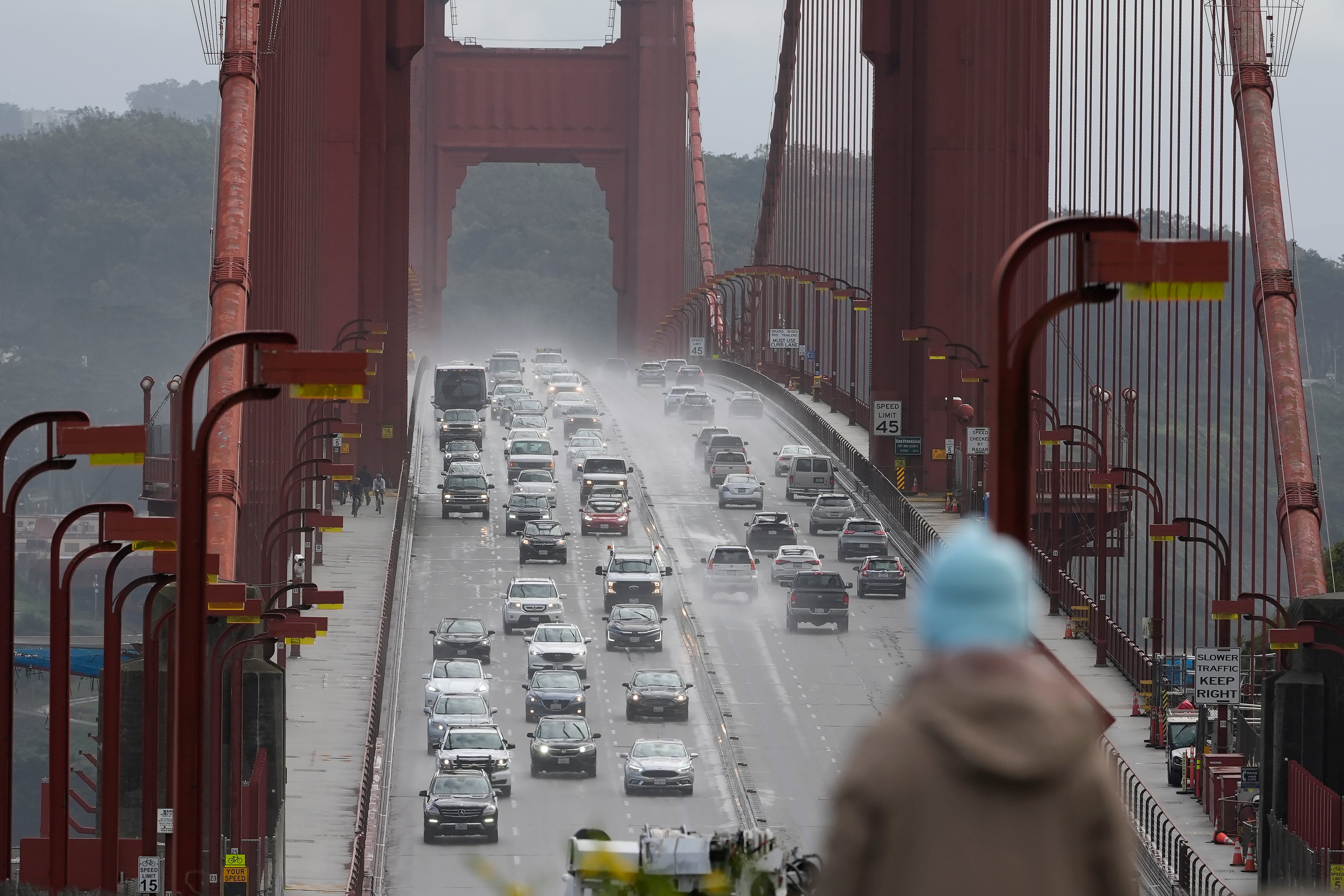New cars in California could alert drivers for breaking the speed limit
A bill before California lawmakers would require new cars sold in the state in coming years to beep a warning whenever drivers exceed the speed limit by at least 10 mph

Your support helps us to tell the story
From reproductive rights to climate change to Big Tech, The Independent is on the ground when the story is developing. Whether it's investigating the financials of Elon Musk's pro-Trump PAC or producing our latest documentary, 'The A Word', which shines a light on the American women fighting for reproductive rights, we know how important it is to parse out the facts from the messaging.
At such a critical moment in US history, we need reporters on the ground. Your donation allows us to keep sending journalists to speak to both sides of the story.
The Independent is trusted by Americans across the entire political spectrum. And unlike many other quality news outlets, we choose not to lock Americans out of our reporting and analysis with paywalls. We believe quality journalism should be available to everyone, paid for by those who can afford it.
Your support makes all the difference.California could soon join the European Union in requiring all new cars to alert drivers when they break the speed limit, a proposal aimed at reducing traffic deaths that would likely impact drivers across the country should it become law.
The federal government sets safety standards for vehicles nationwide, which is why most cars now beep at drivers if their seat belt isn't fastened. A bill in the California Legislature — which passed its first vote in the state Senate on Tuesday — would go further by requiring all new cars sold in the state by 2032 to beep at drivers when they exceed the speed limit by at least 10 mph (16 kph).
“Research has shown that this does have an impact in getting people to slow down, particularly since some people don’t realize how fast that their car is going,” said state Sen. Scott Wiener, a Democrat from San Francisco and the bill's author.
The bill narrowly passed on Tuesday, an indication of the tough road it could face. Republican state Sen. Brian Dahle said he voted against it in part because he said sometimes people need to drive faster than the speed limit in an emergency.
"It’s just a nanny state that we’re causing here,” he said.
While the goal is to reduce traffic deaths, the legislation would likely impact all new car sales in the U.S. That's because California's auto market is so large that car makers would likely just make all of their vehicles comply with the state's law.
California often throws its weight around to influence national — and international — policy. California has set its own emission standards for cars for decades, rules that more than a dozen other states have also adopted. And when California announced it would eventually ban the sale of new gas-powered cars, major automakers soon followed with their own announcement to phase out fossil-fuel vehicles.
The technology, known as intelligent speed assistance, uses GPS technology to compare a vehicle's speed with a dataset of posted speed limits. Once the car is at least 10 mph (16 kph) over the speed limit, the system would emit “a brief, one-time visual and audio signal to alert the driver.”
It would not require California to maintain a list of posted speed limits. That would be left to manufacturers. It’s likely these maps would not include local roads or recent changes in speed limits, resulting in conflicts.
The bill states that if the system receives conflicting information about the speed limit, it must use the higher limit.
The technology is not new and has been used in Europe for years. Starting later this year, the European Union will require all new cars sold there to have the technology — although drivers would be able to turn it off.
The National Highway and Traffic Safety Administration estimates that 10% of all car crashes reported to police in 2021 were speeding related — including an 8% increase in speeding-related fatalities. This was especially a problem in California, where 35% of traffic fatalities were speeding-related — the second highest in the country, according to a legislative analysis of the proposal.
Last year, the National Transportation Safety Board recommended federal regulators require all new cars to alert drivers when speeding. Their recommendation came after a crash in January 2022 when a man with a history of speeding violations was traveling more than 100 miles per hour when he ran a red light and hit a minivan, killing himself and eight other people.
The NTSB has no authority and can only make recommendations.